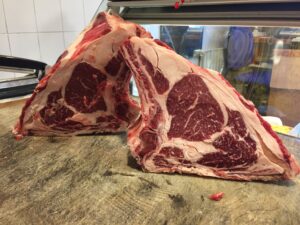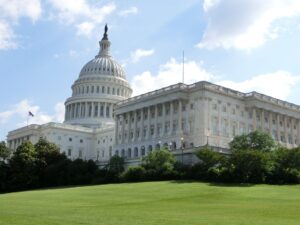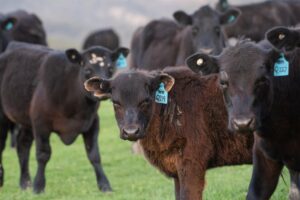With the news going around about meat shortages about to hit the supermarket of choice near you (if a shortage hasn’t hit already), something called the PRIME Act has been gaining some traction.

I wrote about the meat processing plant shutdowns and dial-backs recently, in which the end result is expected to be a lack of meat availability in your stores. I also wrote about how to prepare and what this could mean down the road to smaller, more local producers.
What is the PRIME Act?
The “PRIME” in PRIME Act is actually an acronym. It stands for Processing Revival and Intrastate Meat Exemption.
The PRIME Act, officially known as HR (House Resolution) 2859, is a piece of bi-partisan legislation originally introduced by Rep. Thomas Massie, of Kentucky. The latest resolution was introduced on May 21, 2019 by Massie and co-sponsor Rep. Chellie Pingree, of Maine.
Other co-sponsors are Representatives Justin Amash (MI), Matt Gaetz (FL), Steve King (IA), and several others. Senators Rand Paul (KY) and Lamar Alexander (TN) have also offered their support.

The PRIME Act would be an amendment to the already-in-place Federal Meat Inspection Act, which basically expands the exemption of the custom slaughtering of animals. Under the current law, the exemption only applies to meat slaughtered for household, personal, guest, and employee usage.
The PRIME Act would expand the exemption to include meat that is:
- “Slaughtered and prepared at a custom facility in accordance with the laws of the state where the facility is located.”
- “Prepared exclusively for distribution to household consumers in the state or restaurants, hotels, boarding houses, grocery stores, or other establishments in the state that either directly prepares meals served directly to consumers or offer meat and food products for sale directly to consumers in the state.”
This would allow states to sell non-inspected meat on an intrastate level. Such meats would not be able to cross state lines legally.
In a nutshell, the PRIME Act makes the sale of meat much more of a states’ rights issue and removes an important layer of red tape. This would remove a huge burden from local farms, processors, and sellers who would fill a need for those who desire meat due to any shortages that may arise.
Their meat could otherwise go to waste due to plant closures.
As of 2015, more than half of the states had their own inspection programs.
“The Big Four”
The big guys don’t like the PRIME Act. The PRIME Act and the (intrastate) sale of non-federally-inspected products would allow for more competition from the smaller guys.
The four big meat companies, known as the Big Four, are Tyson Foods, JBS, Cargill, and National Beef. The Big Four produce up to 60% of beef and 80% of pork products in the United States.
The concern for illness coming out of any processing facility or slaughterhouse, regardless of size, is legitimate. No one wants to eat tainted meat.
And no one wants to produce tainted meat from diseased animals or poor handling.
It’s bad for business.
The loosening of regulations for smaller farmers and facilities is also legitimate. There is no known foodborne illness coming out of these facilities.
Why is the PRIME Act important, especially now?
This would level the playing field, so to speak, for the industry. Local producers would be able to sell more easily. They would be able to eliminate a money-pit middle man in inspectors, would be able to move more product, and pass the savings onto customers.
It’s not just about saving a buck.

As the big guys continue to have to scale back their processing plants, we’re going to need the little guys to fill the void for the next time you go to the store to buy your favorite cuts of beef, pork, and chicken. All that will be left will be ultra-processed stuff like sausage or hot dogs.
It’s also about knowing where your meat comes from. Do you know where the farms are that the Big Four draw from? Probably not. And who knows how the animals are treated, how confined they are, and what they’re being fed.
Cattle raised in Iowa or Texas could be processed in Massachusetts or Washington.
Chances are, your local farms deal with animals on a more personal level, are fed better food, and are less stressed and anxious. Happy cows produce less of the stress hormone cortisol, which leads to better meat.
Raising and processing in the case of a smaller operation would likely be performed within a short distance, which would cut down on fuel costs and would be more environmentally-friendly.
When will the PRIME Act possibly be enacted?
There’s no telling.

There’s a long way to go before it gets passed. That’s a big if, but perhaps given the latest meat shortages and their uncertainty, this could be fast-tracked.
It needs your support.
HR 2857 still has to pass through the Committee on Agriculture, the House of Representatives, the Senate, and then would have to be signed by the President.
That’s a lot of hands the bill has to pass through. But if there were ever a time for a major upset, it would be now.
What can you do?
Contact your representative, for starters. Especially those on the Committee of Agriculture.

Follow Representative Massie on Twitter. He tweets his support often–retweet him when he does. Social media will be huge in this.
When people are made aware of the PRIME Act, and the benefits it can provide, they will be more likely to offer their support and contact their representatives.
Small farms need your help and would appreciate your support right now. Help spread the word!
Do you support the PRIME Act? Please comment in the box below!

Leave a Reply